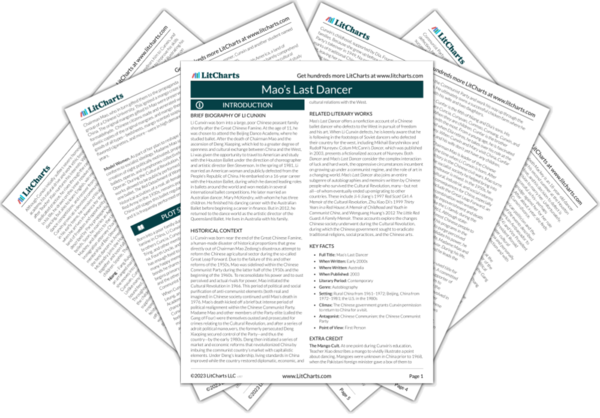Previous
Chapter 10: That First Lonely Year
|
Previous
Chapter 10: That First Lonely Year
|
Mao’s Last Dancer: Chapter 11: The Pen Summary & Analysis |
Next
Chapter 12: My Own Voice
|


Upgrade to unlock the analysis and theme tracking for all of Mao’s Last DancerMao’s Last Dancer!
Get LitCharts A+